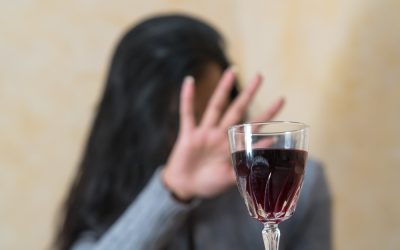Alcohol reduces an individual’s ability to think rationally, lessens inhibitions, and distorts judgment. If an individual consumes too much alcohol too rapidly, they can depress the central nervous system to a point of respiratory failure, coma, http://7ja.net/?p=4134 or death.

Which alcohol makes people the most tired?
- Studies of twins have shown that the same things that lead to heavy drinking in families also make depression more likely.
- They may increase your blood pressure and heart rate and give you more energy.
- Nicotine is one example, although it is most frequently characterized as a stimulant.
- Experts say that women are more likely than men to overdo it when they’re down.
- A standard beer may contain about 5% alcohol, whereas one portion of a distilled spirit could contain 40% alcohol.
USA TODAY is exploring the questions you and others ask every day. From “How long does alcohol stay in your system?” to “Is time travel possible?” to “Why do dogs eat grass?” − we’re striving to find answers to the most common questions you ask every day. Head to our Just Curious section to see what else we can answer for you. For most women, this is four or more drinks in around two hours. Binge drinking is on the rise for multiple groups of the U.S. population, according to the NIAAA. Both alcohol and antidepressants can make you tired, less alert, and uncoordinated.
Alcohol may cause or worsen depression
Many doctors recommend patients check http://www.snowflakebase.com/Breckenridge/page/4/ into a rehabilitation facility. These clinics can help someone go through the withdrawal process with medical supervision. Combining medicines (prescribed or not) with alcohol can lead to unpredictable and unwanted results. It is essential to understand the dangers of mixing alcohol with other depressants to avoid them. BetterHelp offers affordable mental health care via phone, video, or live-chat.
- In fact, alcohol dependency and depression share many of the same risk factors and symptoms — which makes sense, since alcohol is a depressant.
- It’s common for people with social anxiety disorder to drink alcohol to cope with social interactions.
- Drinking alcohol can become a coping mechanism to deal with feelings of hopelessness, numbness, guilt, and worthlessness.
- When you stop drinking, though, that influx of GABA goes away and your brain is flooded with an overabundance of the neurochemical glutamate, which can trigger anxiety, says Volpicelli.
Drug and Alcohol Clearinghouse (DACH)
Alcohol abuse and dependence are both considered an alcohol use disorder, with studies finding that alcohol dependence is more closely tied to the persistence of depressive disorders. And prolonged alcohol use can lead to mental health conditions like anxiety and depression. Alcohol also inhibits glutamate, resulting in memory loss and other impaired brain functionality. In addition to affecting GABA and glutamine, alcohol releases dopamine — the neurotransmitter chemical responsible for pleasure and reward.

It can also decrease feelings of anxiety and make some people chatty or sociable, even energized. It can http://www.tinlib.ru/delovaja_literatura/grjadush_aja_reklama/p22.php also feel rewarding to drink, as alcohol releases dopamine in the brain, encouraging you to keep drinking. If you have social anxiety or a social phobia, therapy may work best to reduce your levels of anxiety (combined with a medication such as sertraline, or Zoloft). Seek help from a mental health professional if you have anxiety. If you think you have a problem with alcohol, seek help from your doctor right away.
- It’s not uncommon to use alcohol as a way to ease tension or nerves or help lower inhibitions.
- This could have a carryover effect on depression since loneliness and lack of social support are linked to depression.
- Reach out to a mental health professional to talk about treatment and strategies for dealing with depression.
- Alcohol reduces an individual’s ability to think rationally, lessens inhibitions, and distorts judgment.
- When treating depression and substance abuse, consult with a mental health professional and/or an addiction specialist who can provide resources and recommendations for possible treatment options.
- Many Americans drink alcohol at least occasionally, usually for social reasons.

Recent Comments